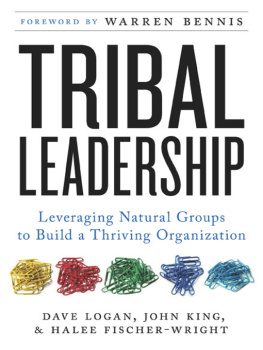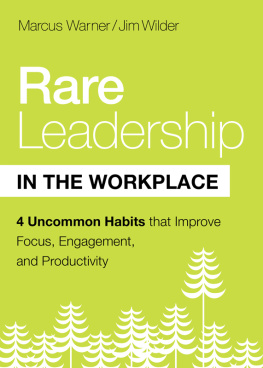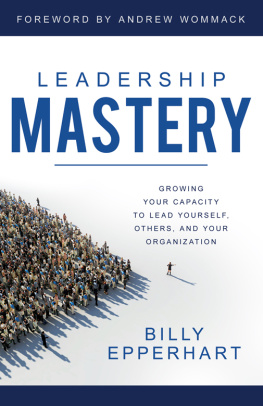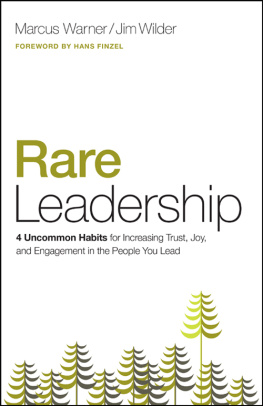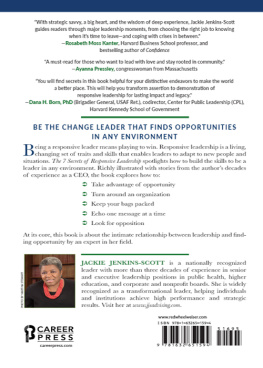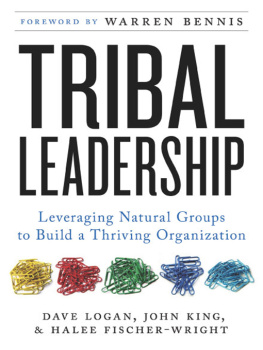This book would not be possible without a list of people were honored to consider part of our tribe.
First, the heart of our tribe is Jack Bennett, COO of our consulting firm, but more importantly, a constant friend and advocate. He kept the company running so we could take time to research, teach, and write. There was never a job too big or too small; if it advanced the cause, Jack was there doing it before we could ask. On the next page is our core team: left to right, Dave, Halee, John, and Jack.
We are grateful to the people who granted us interviews, turning cold research findings into stories. The list includes Scott Adams, Don Beck, Carol Burnett, Gordon Binder, Kathy Calcidise, Jim Clifton, Gary Cole, Glen Esnard, Werner Erhard, Mike Eruzione, Brian France, Danny Kahneman, David Kelley, Bob Klitgaard, Marty Koyle, Frank Jordan, Tom Mahoney, Barney Pell, Sandy Rueve, Mark Rumans, Steven Sample, Brian Sexton, Bob Tobias, Charise Valente, Ken Wilber, George Zimmer, the leaders of Griffin Hospital, and the tribe around Design for You in Chicago (especially William and Morgon).
To our review committeea group of people who read through our often agonizing rough drafts and helped us figure out what we were saying. The list includes Marcus Berry, Grace Cheng, Jim Crupi, Loree Goffigan, Gretchen Knudsen, Jay Iinuma, Anna Maria Larsen, Megan ODonnell, Robert Richman, Jody Tolan, and Greg Vorwaller.

Photo credit: MelindaKelley.com
At USC, were indebted to years of students in the Executive MBA, Master of Medical Management, Master of Accounting, and Marshall MBA. The students at USC helped refine and shape our ideas, with many emerging as Tribal Leaders. This book would not have been possible without the mentoring and safe space USC provided, and we acknowledge the faculty and staff of the Marshall School of Business.
A special thanks to our agent, Bonnie Solow. Bonnie, this book would not have come together were it not for your absolute professionalism, support, and advice. We will always remember our meetings with you, and with LuLu, a special friend.
Bonnie introduced us to Ethan Friedman, our editor. Thank you for taking this project to the next level through your comments and encouragement, and for introducing us to the tribe at HarperCollins who literally made this book happen. That list includes Sarah Brown, Ruth Mannes, Georgia Morrissey, Victor Mingovits, Helen Song, Anna Chapman, Leah Carlson-Stanisic, and Nyamekye Waliyaya.
We wrote Tribal Leadership as the voice of one tribe, but there are several people that Dave, John, and Halee thank personally.
Johns list of Tribal Leaders and partners includes Paul Buss, Rick Chichester, Mike Fitz-Gerald, George Kallis, Scott Kaplan, Randy McNamara, Marsha Morton, Dene Oliver, Craig Robbins, and Candace Shivers Morgan. John sends his appreciation to the thinkers and educators at the Santa Fe institute for inspiring him to merge Chaos and Complexity theory with the human sciences. He would like to acknowledge Landmark Education for cocreating the context for the central interests of his life. On a personal level, John thanks J.H. Vandapool, his first mentor. John says: Van always saw the dream and aspirations of young people and dedicated his life to training and developing young leaders to attain the impossible. He touched thousands of young lives and his influence on me is present daily. Beyond Van, my family, particularly my mother, Mary King, a woman grounded in core values and the relationship realities of life, and at 93, still teaching her gentle and intelligent philosophy of human interactions. And, lastly, thanks profoundly to my daughter, Krista, her husband Mark, and their three beautiful daughters, Kyra, Juliet, and Keely.
Halees list includes many strong female tribal leaders that are her mentors in medicine, business, life and friendship, including Grace Caputo, Dale Singer, Lisa Wetherbee, Tracy Beranek, Julie Zimbelman, Pat Mattews, Josie James, and her grandmother, Ida Fischer. She sends a special thank you to her role models: A.D. Jacobson, Walt Haggerty, and Mark Rumans. Halee adds: I send special love, gratitude, and appreciation to my parents. My most important acknowledgment goes to my husband, Michael. He is a steadfast companion, giving love, humor, and an occasional kick in the butta truly extraordinary man.
For Dave, the list includes partners and Tribal Leaders: Skip Beebe, Karla Wiseman Bright, Rich Callahan, Bob Myrtle, and John Ollen, as well as mentors in business and academia, including Tim Campbell, Dave Carter, Mike Duffy, Bill Cohen, Tom Cummings, Warren Bennis, Beverly Kaye, Peter Marston, Patricia Riley, and Bernie Schnippert. Dave would like to acknowledge a debt of thanks to the Barbados Group, notably Michael Jensen and Steve Zaffronboth friends and teachers. There are two people worthy of special thanks: Ken Wilber, who took time from his busy schedule, and significant health problems, to guide us in the last stages of our research; and Werner Erhard. Dave is grateful for Werners friendship, listening, outside the box thinking, and encouragement. Daves most important acknowledgment goes to Harte. He says: You are not only my wife and strongest supporter, yours were the first eyes to see our proposal and chapter drafts. Much of this book was worked out in our long talks on the beach, and without you, we wouldnt have found Bonnie. You are a constant champion, my best friend, and yes, a Tribal Leader.

